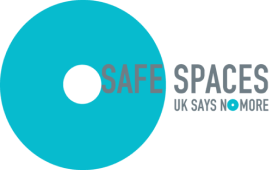Depression
Depression is an illness which is caused by a combination of biological, social, and psychological factors. It is the most common mental health problem worldwide and around 1 in 5 people in the UK will experience some significant symptoms of depression each year, although not all of them would meet the diagnostic criteria if they were to see a mental health professional. No one should feel ashamed if they are depressed.
People do not choose to become depressed; it is a medical condition. If people with depression knew how to ‘fix it’ they would – they can’t just ‘deal with it’ or ‘snap out of it’. Unlike some physical illnesses, there are no easy tests or outward signs that someone is depressed. Depression is not just a bad mood or a phrase which describes you have a bad day. There isn’t always an external reason for feeling depressed. It isn’t about feeling sorry for yourself and it doesn’t mean you are weak. Many successful and famous people, including Winston Churchill and JK Rowling, have suffered from depression, and research carried out by BUPA suggests that over half of business leaders have experienced depression at some point in their lives. So, if you too suffer from depression, you’re in good company.
Depression can often hurt emotionally and physically. It is different from the low mood or sadness everyone experiences from time to time. If your low mood goes on for weeks upon end, if it impairs your ability to get on with your usual activities and if you can only think dark, horrid thoughts and fail to find any goodness in each day, you should seek medical help as soon as possible. The good news is that with effective treatment and support most people recover fully.
How do I know I’m depressed?
How depression actually manifests is understandably variable – we respond to it in many different ways. As with the signs of stress, depression can show up as:
- changes in thinking (such as an inability to remember the good times).
- changes in feelings (emotional shut down, anger, anxiety, panic attacks, unable to experience enjoyment)
- changes in behaviour (exhaustion, loss of confidence, irritability, social withdrawal, etc)
NHS Choices website has an online depression assessment tool which might help you to decide whether you need to see your GP. Vetlife Health Support can also provide free and confidential professional advice about any symptoms you are experiencing.
Remember, the depressed mind often lies – it can make you think that things have never been good, that you have always been a failure, and that things cannot improve. Try to remember a time you know was good – almost certainly the depression will give it a negative twist. Don’t believe the lie!
“Getting good help is essential. From personal experience, I can applaud Vetlife Helpline for getting me through my own dark periods. I feel that, because so many factors relate to events specific to veterinary work, to have someone at the end of the phone who knows our industry is reassuring.”
Dr Adrian Longstaffe, psychotherapist and veterinary surgeon
Video: I had a black dog, his name was depression
The CBT perspective
Depression is characterised by a whole range of thoughts, feelings and physical sensations which are collectively designed to respond to threat. In cognitive behavioural psychology (CBT), three systems are described:
• a threat response system (i.e. stress, anxiety and depression)
• an excitatory system (e.g. when we feel passion about our work or about projects in our lives)
• a calming system (e.g. when we feel relaxed and at one with the universe)
These systems need to be in flexible balance depending on the demands of the moment. Depression happens when the threat response system takes over and the other two are diminished. Clinical depression is when this happens to such an extent that our ability to enjoy life or even cope with the problems of daily living is diminished or disabled.
More information
• Mind website: Understanding Depression
• Royal College of Psychiatrists: Depression , Depression and Men , Antidepressants



